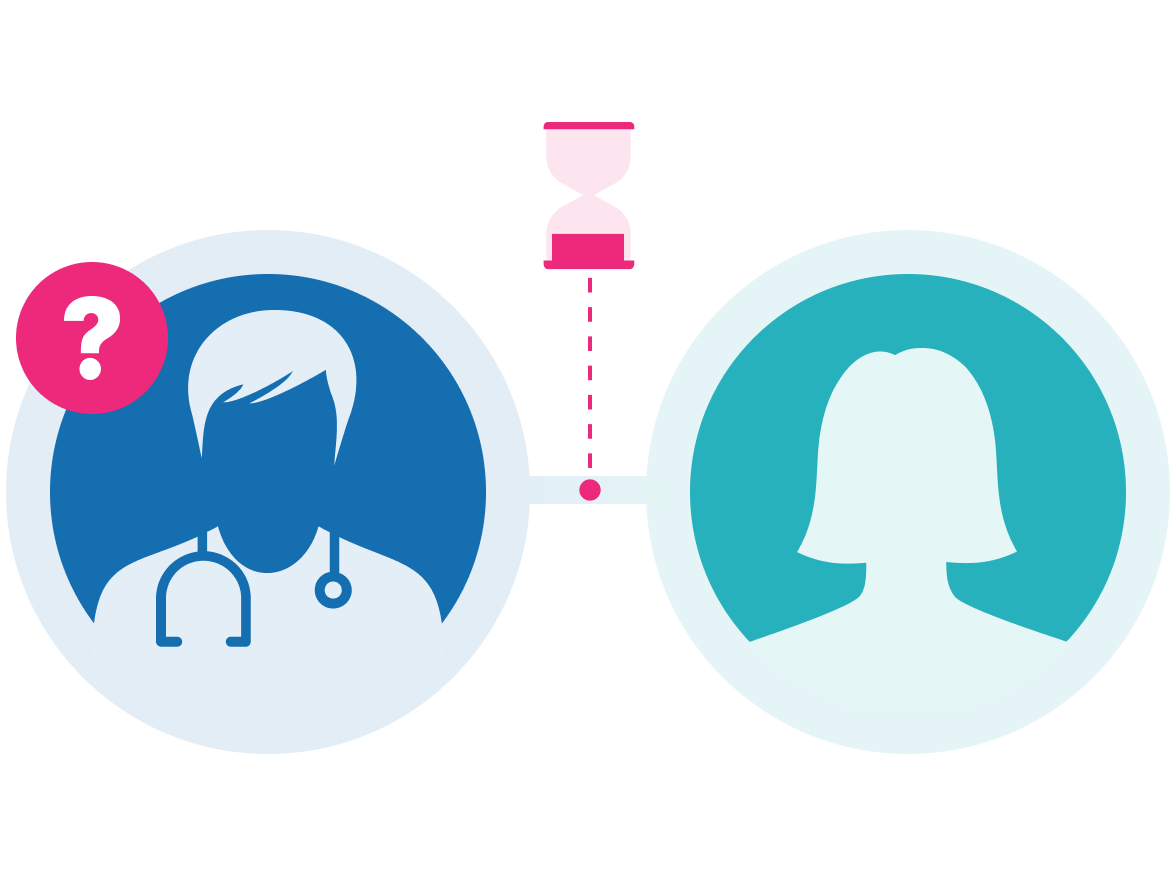Case Study
Accelerating First-Line Oncology Treatment Decisions with Timely, Actionable Lab Data Alerts
Client
A leading biopharmaceutical company
Therapeutic Area
Oncology - NSCLC, CRC, ROS1+, KRAS G12C, PDL1-negative
Prognos Product/Service
Lab-based HCP Alerts Program


The Challenge
The client's goal was to effectively identify and engage healthcare providers (HCPs) who were treating patients eligible for their first-line oncology therapies, particularly in Non-Small Cell Lung Cancer (NSCLC) and other indications like ROS1+ and KRAS G12C.
This work had a critical time constraint. Treatment decisions for NSCLC patients are often made within five days of lab results. The company found that if alerts were not delivered daily, 60% of potential opportunities were lost within a week.

The client faced several additional challenges:
Limited Data Coverage
The company used multiple lab vendors and aggregators, but could only capture 45-50% of the relevant U.S. patient population. They had significant "blind spots" within academic and community hospitals.
Provider Identification Gap
A major pain point was that many alerts were linked to pathologists or pulmonologists, not the treating oncologists. This made the alerts non-actionable. For example, 40% of alerts for PDL1-negative patients were previously unusable due to this issue. The client needed a solution that could accurately identify the right oncologist or hematologist seeing the patient.
Budgetary Constraints and ROI
The company needed to demonstrate a 5x ROI to secure funding for data solutions. Their budget was constrained and under C-level scrutiny, with a focus on ROI, coverage, and alignment with strategic imperatives.
The Prognos Solution
Prognos partnered with the client to implement a lab-based HCP alerts program designed to address these urgent needs and critical gaps. The solution leveraged the Prognos data marketplace.
Enhanced Timeliness
Prognos provided daily alerts for critical first-line therapies like ROS1+ NSCLC. This was a significant improvement over the less frequent deliveries from prior partners that had resulted in lost opportunities. While a small volume might limit some alerts to twice weekly, the focus remained on maximizing speed and ensuring alerts were actionable within two days.
Superior Data Quality & Normalization
Prognos data is recognized for being "beautifully clean" and of "so much higher quality" compared to other sources. This reduced the need for internal data cleaning by the client and allowed for quicker ingestion and direct feeding into their CRM. Prognos aggregates, normalizes, and standardizes data from various labs.
High Treating Oncologist Match Rates
Prognos demonstrated high mapping rates for treating oncologists, directly addressing the client's need to link patients to treating oncologists rather than pathologists. Prognos’s data enrichment capabilities can increase treating provider fill rates by 60-100% across various oncology conditions.
Comprehensive Data Aggregation & Enrichment
As a data marketplace, Prognos integrates and normalizes data from various labs. Prognos was able to enrich lab data with claims information to optimize HCP identification and fill coverage gaps from academic and community hospitals that were not captured elsewhere.
The Impact
Prognos’s lab-based alerts program delivered exceptional and transformative value for the company, quickly becoming a central and highly impactful component of their commercial strategy:
Improved ROI and Commercial Effectiveness
The company observed a "pretty good ROI" on the alerts program and believed it could achieve the crucial 5x ROI needed for funding.
The program was reported to "lead to a change in behavior in physician prescribing" and an increase in prescriptions. The program,s effectiveness was measured by seeing a good difference in prescription behavior between alerts that were executed versus those that were not.
High Alert Execution Rates
The client demonstrated remarkable operational efficiency, with their sales force achieving a 70-85% execution rate on alerts within two days for ROS1+ cases.
This high rate was largely attributed to internal capabilities and alignment, where alerts were linked to sales representative objectives and tracked weekly.
Enhanced Patient Finding and HCP Engagement
For PDL1-negative NSCLC, the alerts program worked well and contributed to "great ROI."
The ability to quickly identify relevant patients and their treating HCPs was seen as a "game changer," especially given that 40% of alerts were previously unused due to the pathologist identification gap.
Strategic Partnership
Prognos is considered a "leader in lab data aggregation" and is appreciated for its partnership.
The high value the client associates with the quality and timeliness of the data has led to a desire for continued collaboration and integrating feedback into the product roadmap.
Conclusion
By providing high-quality, seamlessly integrated, and timely lab data alerts that precisely identified treating oncologists and covered critical patient populations, Prognos enabled the client to accelerate treatment decisions, optimize sales force efforts, and maintain strategic investment in its oncology portfolio. This partnership highlights Prognos's ability to be a strategic partner that not only solves immediate data challenges but also drives tangible business outcomes.